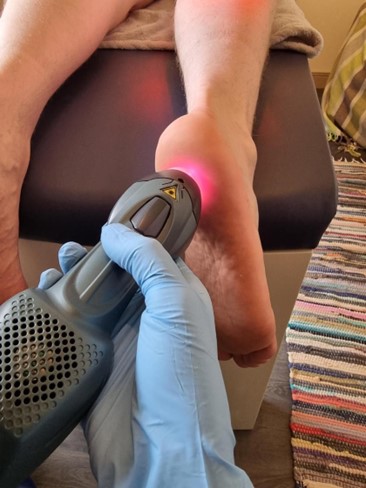Welcome back to our mini series all about verrucas! If you missed part one, you can catch up here: ‘What is a verruca?’ Today, we’re talking about how to prevent verrucas whether you’re poolside or staying home this summer.
Firstly, let’s recap on exactly what a verruca is. Commonly referred to as a ‘plantar wart’ by chiropodists, a verruca is a wart on the sole of the foot. Caused by the human papilloma virus (HPV), verrucas are super common. Whether through skin-to-skin contact or via a contaminated surface, verrucas are easily spread. But there are measures you can take to lesson your chances of getting them.
In today’s post, we’ll take a look at some of the more common preventative measures.
How to prevent verrucas
1. Protect broken or damaged skin
HPV easy infects broken or damaged skin, so protecting any broken or damaged areas is a great way to lesson the risk of infection. Waterproof plasters are a great option to protect your feet whilst poolside.
2. Wear flip flops or sliders poolside or in communal areas
As HPV is passed on easily by skin-to-skin or contaminated surfaces, it makes sense to avoid going barefoot in communal areas. Swimming pool tiles or even gym changing rooms are real hotspots for verrucas, so keep a pair of flip flops or sliders handy to protect your feet.
3. Keep your feet dry
Verrucas tend to spread easier when skin is damp, so ensure to dry your feet thoroughly after activities like swimming.
4. Always use clean towels/socks/hosiery
As bacteria and germs thrive in warm, damp places, it makes perfect sense to ensure that your towels, socks and hosiery are always clean and dry before wearing.
5. Don’t share towels, socks or shoes with other people
Sharing personal items is a great way to heighten your risk of getting a verruca. So eradicate that risk by keeping personal items like these just for yourself.

Already got a verruca and want to prevent the spread?
1. Seek treatment as soon as possible
It’s always much easier to treat one verruca, rather than many. So seeking treatment at the first sign of a verruca before the infection has the chance to spread is the most sensible approach.
2. Avoid touching or scratching the verruca
As verrucas are spread via contact, it’s really important to avoid touching or scratching them where possible. If you do need to touch them for any reason, ensure that you wear gloves and that you wash your hands thoroughly before and afterwards.
3. Wash socks, hosiery and towels at 60 degrees
As HPV can spread via contaminated surfaces, ensure your towels/socks/hosiery are washed at a higher temperature to help kill any bacteria that might be lingering.
4. Don’t go barefoot
Help protect yourself and others by keeping your feet covered, whether that’s by wearing shoes in communal areas, or wearing a waterproof plaster whilst swimming.
Join us next Friday where we’ll be discussing the most common treatment options for verrucas.
Need to book in for our verruca treatments?
Give us a call today on 01226 759 660 or contact us here to book your appointment.



